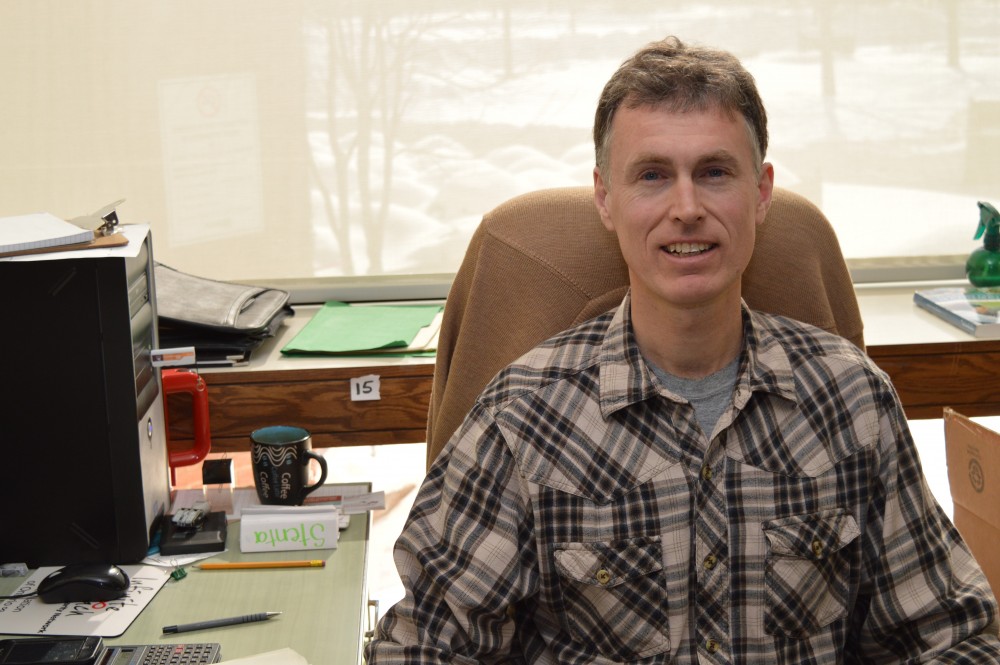
become a target for retaliation because of Yemen drone strikes. The administration at Algonquin’s
Woodroffe campus is confident that the overseas campus is safe for both students and staff.
In spite of Algonquin’s campus in Saudi Arabia operating 200 kilometres from an unstable country, college administration is maintaining it’s safe and secure for students and staff.
Doug Wotherspoon, vice president of communications, maintains that critics of the campus who have not travelled to Saudi Arabia may not understand how welcoming the area truly is.
“Our campus is fully gated with security personnel at each access point. Working together with the local police, our employees and security personnel work each day to provide a safe campus experience,” said Wotherspoon. “Like we do in Canada, we are constantly monitoring safety issues and make adjusts in our plans as required.”
He also said that Algonquin has had a warm reception in the country and feels like a respected establishment in the community.
Algonquin president Cheryl Jensen said that on her recent visit to Saudi Arabia in January, she felt entirely safe in that community.
“We’ve always been concerned with safety, as we are in any of our campuses,” said Jensen. “With the information available to date, I feel quite confident with the security measures in place.”
However, this hasn’t alleviated the concern felt among the Woodroffe faculty ranks, especially following the collapse of the Yemen government and the death of King Abdullah in Saudi Arabia.
Calvin Climie, a math professor in general arts and sciences, admits that the campus is an opportunity to help students but is uncomfortable with the country and the area it is located in.
“Yemen has been under drone attacks for the past several years; the US is assassinating people when sending out these drones, often killing many civilians, including children, in the process. To have representatives of the west fairly nearby could put those people at risk of reprisals,” said Climie. “Especially since the Canadian government has not been particularly outspoken against these drone attacks.”
Climie fears that because the Canadian government has not spoken against these drone attacks, the campus could become a legitimate target.
Another faculty member, Jack Wilson, a professor in the police and public safety institute, is concerned because the justice system in Saudi Arabia is not the kind Canadians are familiar with. He said that the majority of people executed in the regime were foreigners and doesn’t believe there to be standards in place to ensure their safety if they were accused of a crime.
“I don’t have much faith in the Saudi judicial system working in our favour,” said Wilson.
But Wotherspoon assured that Algonquin has prepared its staff in Jazan, informing them how they must conduct themselves in Saudi Arabia.
“When you work, or indeed travel, internationally you are required to respect and abide by the laws of the country you are visiting. Every employee who works overseas is fully briefed on the culture, norms, and laws of the countries they are working in,” said Wotherspoon.
Wilson has been an avid critic of the college’s business with Saudi Arabia since the beginning. He doesn’t understand why any college would want to associate themselves with the area, especially with the trouble that lies ahead for Saudi Arabia’s neighbour.
“Yemen is essentially a failed state,” said Wilson. “Does it really make sense to put our money into that area?”
Yemen is in a state of turmoil as civil war erupted between Shia Muslim Houthis in the north and the southern Sunni Muslim tribes, who remain loyal to the American-backed leader, Abed Rabbo Mansour Hadi. Hadi stepped down as president on Jan. 22 after Houthi rebels held him captive in his home.
Yemen is also considered dangerous for its known connections to al-Qaeda, who attacked the Saudi-Yemen border in August 2014. This attack enforced a U.S. travel warning that is still in effect, while the Canadian government has warned to maintain extreme caution in the Saudi area and to not travel to Yemen at all.


